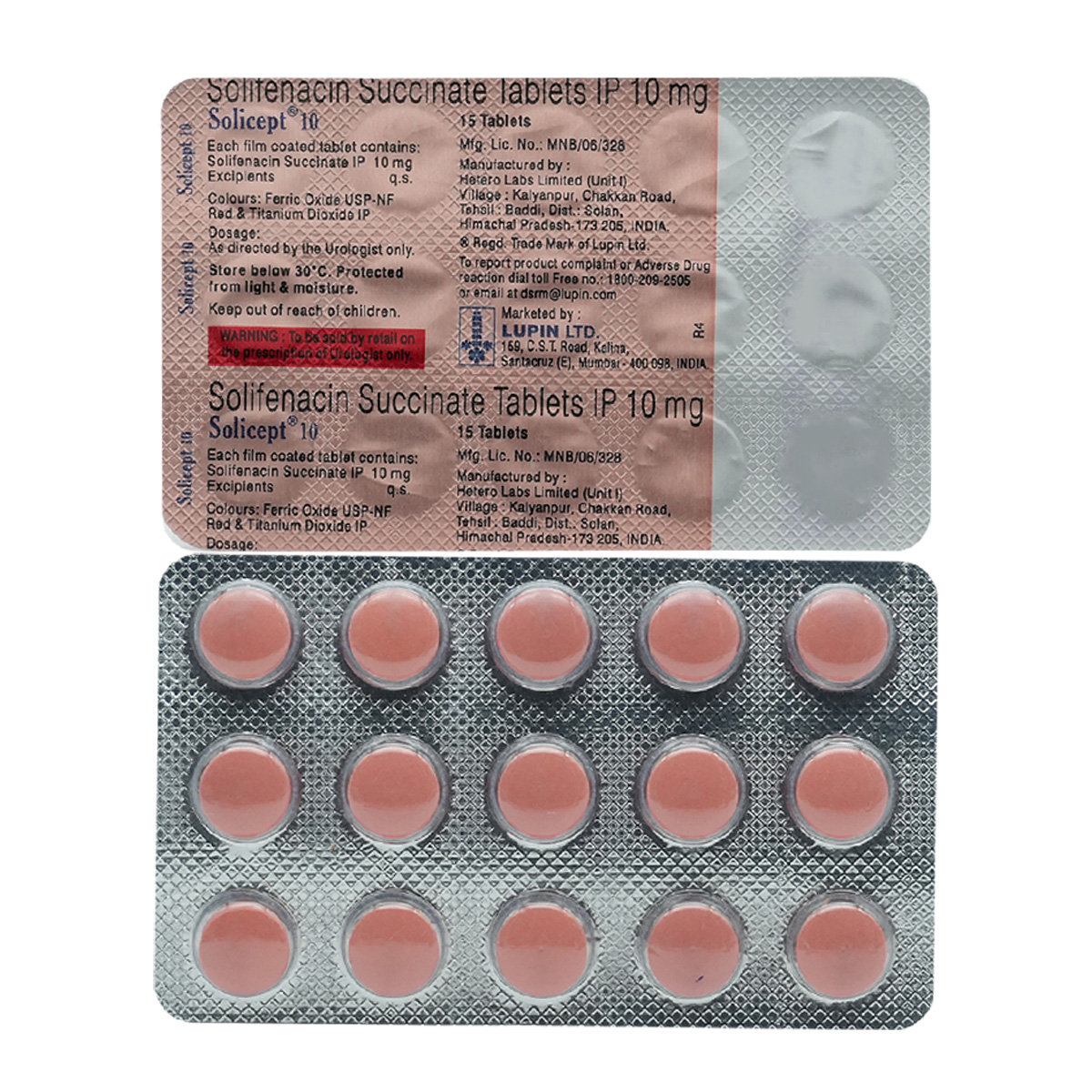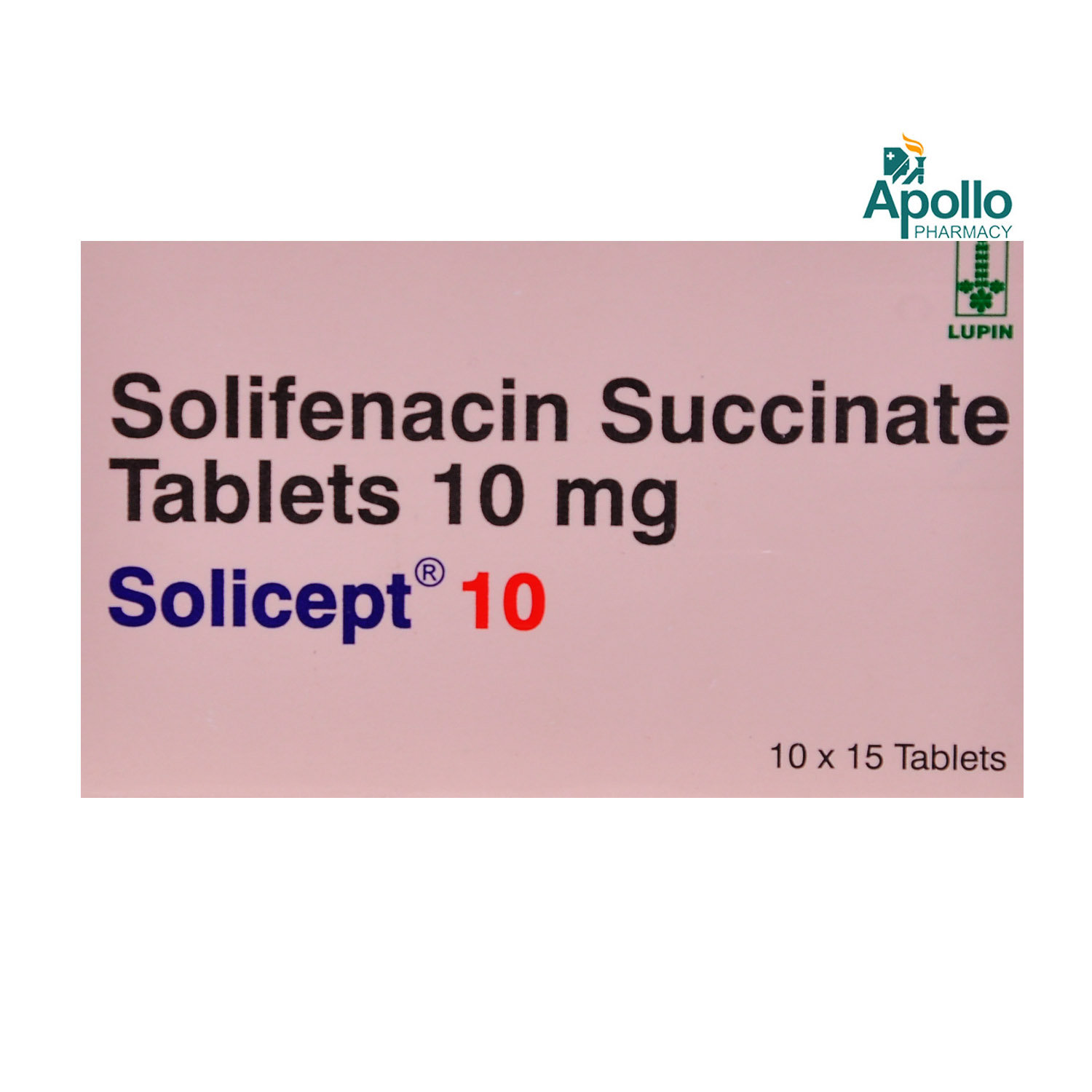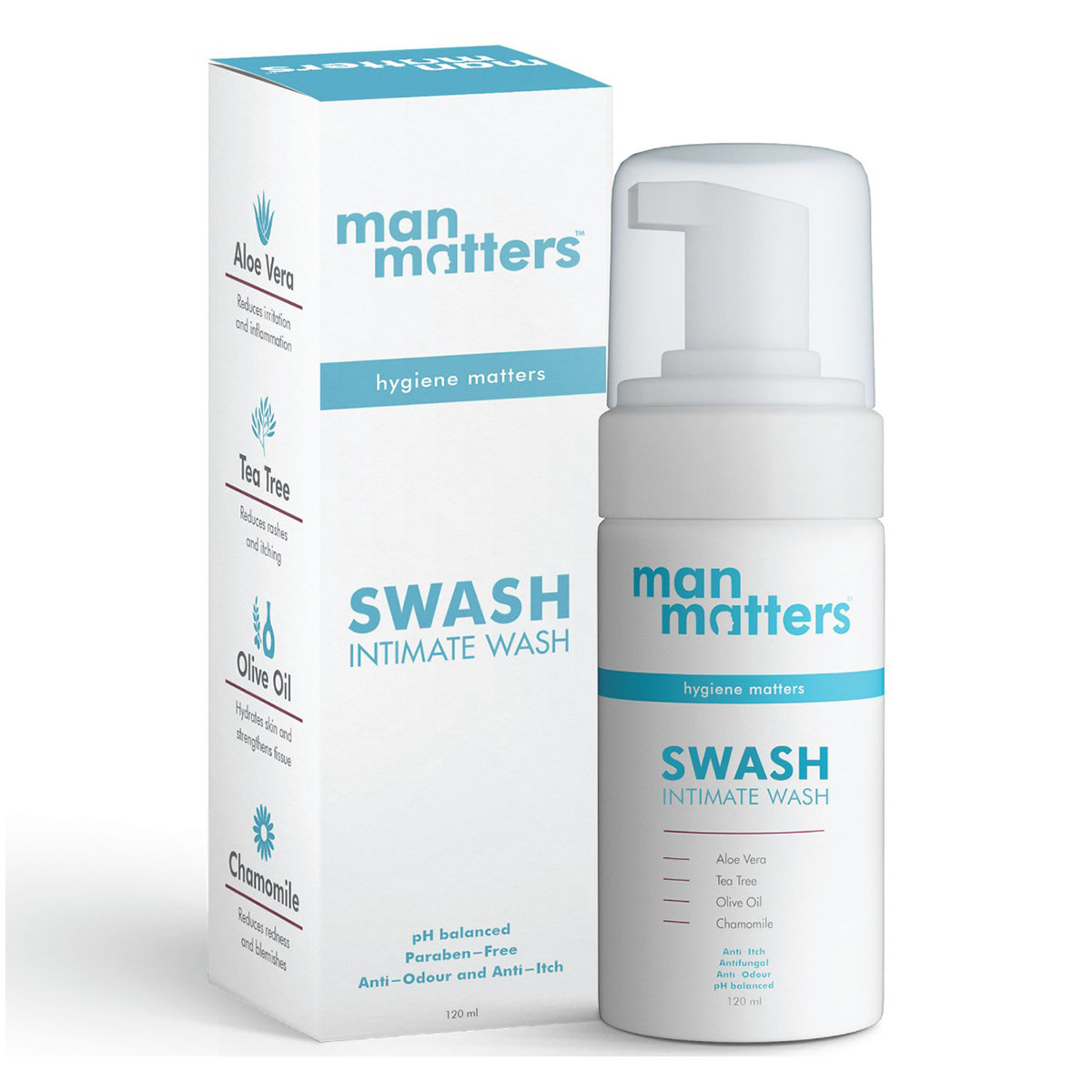SOLIACT 10MG TABLET
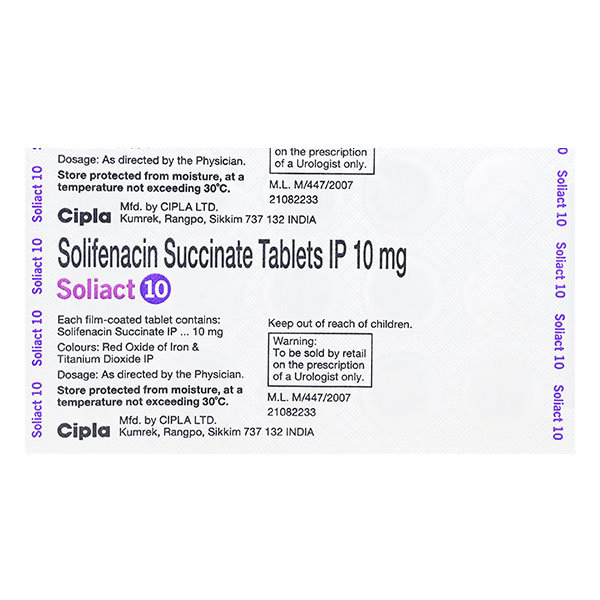
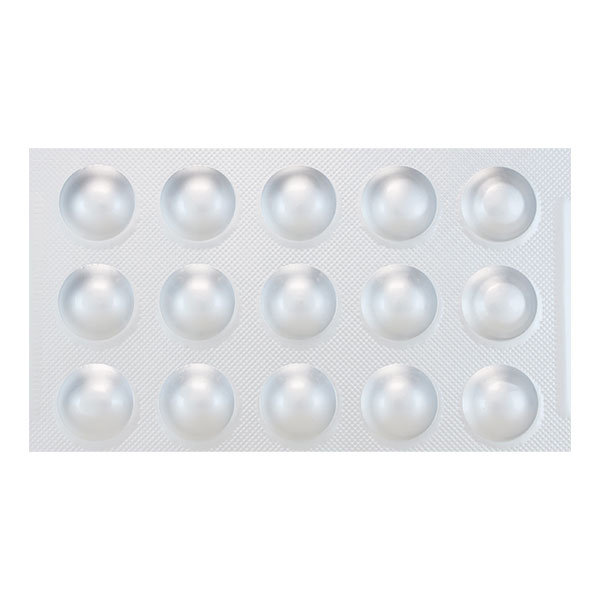
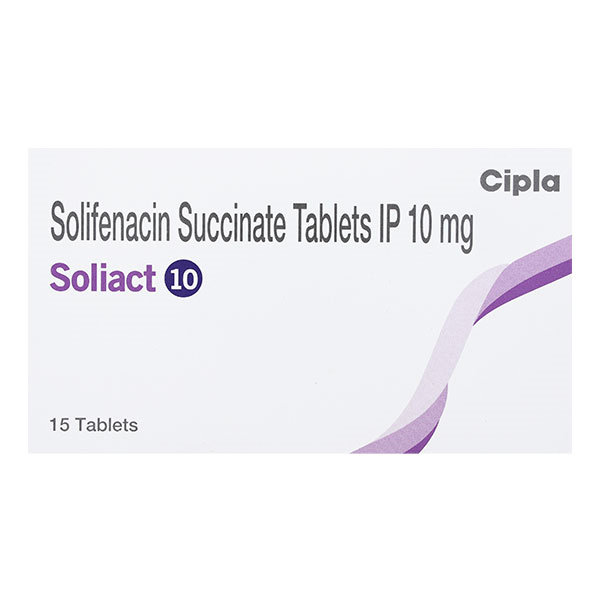
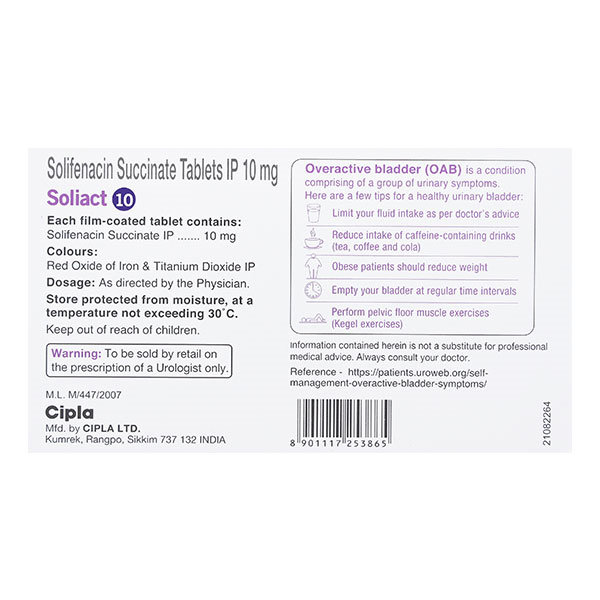
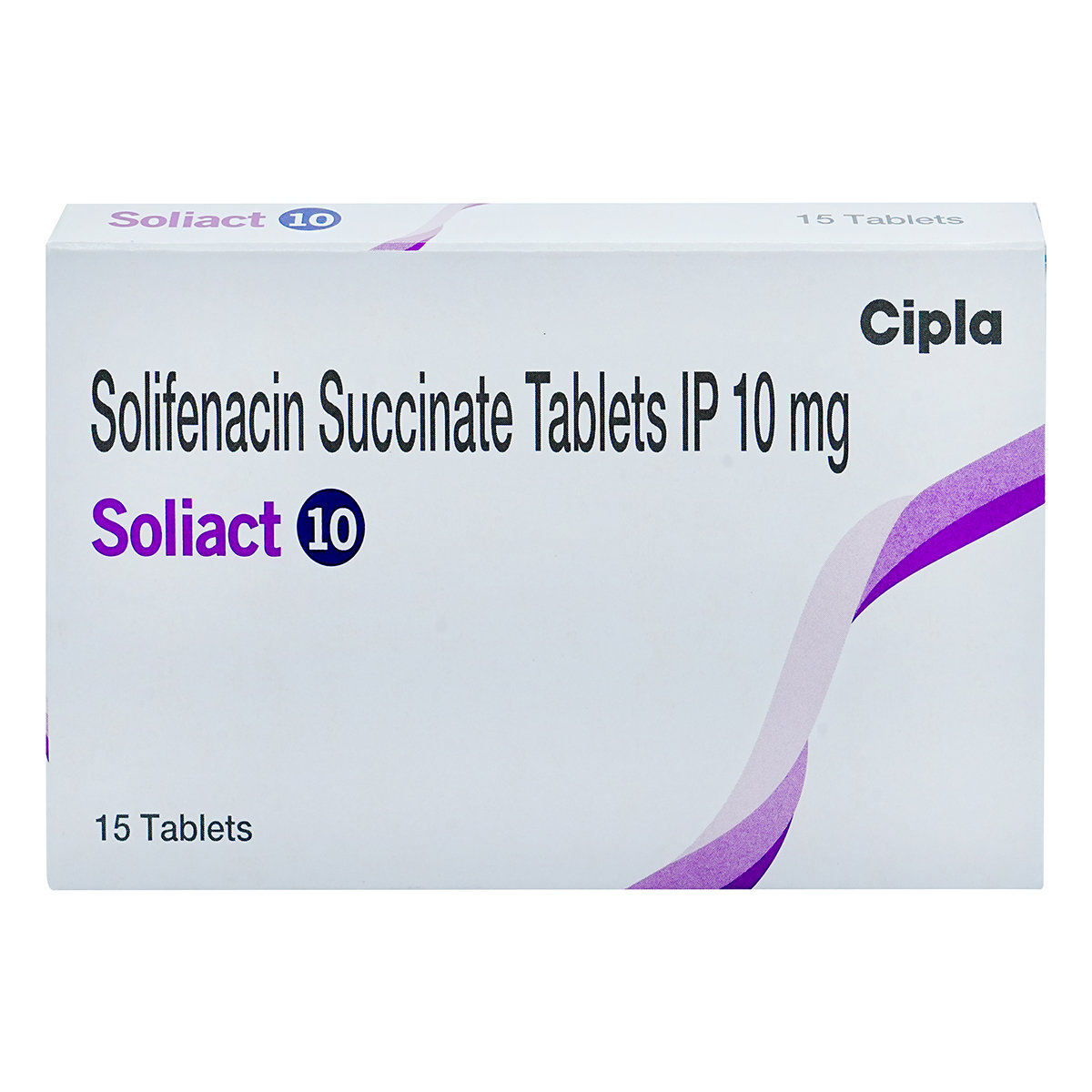
MRP ₹944
(Inclusive of all Taxes)
₹141.6 Cashback (15%)
know your delivery time
Provide Delivery Location
Composition :
Manufacturer/Marketer :
Consume Type :
Expires on or after :
Return Policy :

Secure Payment

Trusted by 8 Crore Indians

Genuine Products
Therapeutic Class
Country of origin
Manufacturer/Marketer address
Disclaimer
Alcohol
Safe if prescribed
Avoid taking alcohol as it increases the risk of side-effects.
Pregnancy
Consult your doctor
SOLIACT 10MG TABLET is a category C medicine. It should be used in pregnant women if the benefits outweigh the risks.
Breast Feeding
Consult your doctor
SOLIACT 10MG TABLET should be used in breastfeeding mothers only if clinically needed.
Driving
Safe if prescribed
SOLIACT 10MG TABLET may cause dizziness and blurred vision. So, avoid driving or operating heavy machinery after using SOLIACT 10MG TABLET.
Liver
Consult your doctor
SOLIACT 10MG TABLET should be used with caution in patients with liver diseases. Dose adjustments may be necessary.
Kidney
Consult your doctor
SOLIACT 10MG TABLET should be used with caution in patients with kidney diseases. Dose adjustments may be necessary.
Children
Safe if prescribed
SOLIACT 10MG TABLET should not be used in children below 12 years of age unless prescribed by a doctor.
Product Substitutes
About SOLIACT 10MG TABLET
SOLIACT 10MG TABLET belongs to the group of medications called ‘urinary antagonists' or 'antispasmodics' primarily used in the treatment of overactive bladder (OAB) symptoms. Overactive bladder is a condition in which the urinary bladder muscles constrict uncontrollably, thereby causing an urgent need to urinate, frequent urination, and inability to control urination. Besides this, SOLIACT 10MG TABLET is also used for the treatment of neurogenic detrusor overactivity (a bladder control condition caused by neurological problems) in children 2 years and above.
SOLIACT 10MG TABLET contains ‘Solifenacin’ that relaxes the urinary bladder muscles which in turn decreases the activity of the overactive bladder. In an overactive bladder, muscle contractions occur before the full expansion of the bladder causing the patient to have frequent urges to urinate. SOLIACT 10MG TABLET stops these sudden contractions of urinary bladder muscles thereby enabling control over urination. Thus, it increases the amount and volume of urination that can be held by your bladder.
Take SOLIACT 10MG TABLET as prescribed by the doctor. Common side-effects of SOLIACT 10MG TABLET are dry mouth, blurred vision, constipation, nausea, dyspepsia (indigestion), abdominal pain, burping or belching, heartburn, and stomach upset. Inform your doctor if these side effects do not go away or get worse.
Do not take SOLIACT 10MG TABLET if you are allergic to ‘solifenacin’ or any other ingredients present in it. Before taking SOLIACT 10MG TABLET, inform your doctor if you have kidney disease, liver disease, bladder blockage, myasthenia gravis (a muscle disease), stomach or bowel problems (including constipation), glaucoma (increased pressure in the eye causing loss of vision), or a history of heart rhythm problems (including QT prolongation). Also, inform your doctor if you are pregnant or breastfeeding. Inform your doctor if you have an intolerance to sugars as this medicine contains lactose. Do not take grapefruit or grapefruit juice with this medication. Avoid driving or operating heavy machinery as this medicine may cause dizziness.
Uses of SOLIACT 10MG TABLET
Medicinal Benefits Mweb
Key Benefits
SOLIACT 10MG TABLET contains ‘solifenacin’ that belongs to the class of medications called 'anticholinergics'. It can decrease the activity of the overactive bladder. In an overactive bladder, muscle contractions occur before the full expansion of the bladder causing the patient to have frequent urges to urinate. SOLIACT 10MG TABLET can stop these sudden contractions of bladder muscles. It enables control over urination and increases the amount of urine that can be held by your bladder.
Directions for Use
Side Effects of SOLIACT 10MG TABLET
- Dry mouth
- Blurred vision
- Constipation
- Nausea
- Dyspepsia (indigestion)
- Urinary tract infections
- Blurred vision
- Abdominal pain
- Burping or belching
- Heartburn
- Stomach upset
Drug Warnings
Do not take SOLIACT 10MG TABLET if you are allergic to ‘solifenacin’ or any contents of it. Before taking SOLIACT 10MG TABLET, inform your doctor if you are pregnant or breastfeeding or if you have kidney disease, liver disease, bladder blockage, controlled narrow-angle glaucoma, or stomach or bowel problems (including constipation), or a history of heart rhythm problems (including QT prolongation). SOLIACT 10MG TABLET has lactose, so inform your doctor if you have an intolerance to any sugars. SOLIACT 10MG TABLET may cause dizziness or blurred vision. So, do not drive or operate any heavy machinery. It can increase body temperature by decreasing sweating. So, avoid hot weather or doing strenuous exercise as this may cause overheating leading to unwanted effects.
Drug-Drug Interactions
Drug-Drug Interactions
Login/Sign Up
Using Mesoridazine together with Soliact 10 Tablet can increase the risk of an irregular heart rhythm.
How to manage the interaction:
Taking Mesoridazine with Soliact 10 Tablet is not recommended, please consult your doctor before taking it. You should seek immediate medical attention if you develop sudden dizziness, lightheadedness, fainting, shortness of breath, or heart palpitations call a doctor.
Taking Soliact 10 Tablet and Potassium chloride together can increase the risk of stomach ulcers, bleeding, and stomach injury.
How to manage the interaction:
Taking Soliact 10 Tablet with Potassium chloride is not recommended, as it can lead to an interaction, it can be taken if a doctor has prescribed it. However, if you experience severe stomach pain, bloating, sudden lightheadedness or dizziness, nausea, vomiting (especially with blood), decreased hunger, dark, tarry stools, consult the doctor immediately. Do not discontinue any medications without a doctor's advice.
The blood levels and effects of Soliact 10 Tablet may be greatly increased when combined with itraconazole.
How to manage the interaction:
Soliact 10 Tablet and Itraconazole may interact, however, if recommended by a physician, they are safe to consume. Consult a doctor if you feel sleepy, or uneasy, have an irregular heartbeat, have blurry vision, have trouble urinating, have a dry mouth, a headache, have digestive problems, or have constipation. Without consulting a doctor, never stop taking any medication.
Coadministration of Soliact 10 Tablet with Nefazodone may significantly increase the blood levels of Soliact 10 Tablet.
How to manage the interaction:
There may be a possibility of interaction between Soliact 10 Tablet and Nefazodone, but it can be taken if prescribed by a doctor. If you experience drowsiness, dizziness, irregular heartbeat, blurry vision, difficulty urinating, dry mouth, headache, gastrointestinal upset, or constipation, consult the doctor immediately. Do not stop using any medications without talking to a doctor.
Using nilotinib together with Soliact 10 Tablet can increase the risk of an irregular heart rhythm.
How to manage the interaction:
There may be a possibility of interaction between Nilotinib and Soliact 10 Tablet, but it can be taken if prescribed by a doctor. If you have any of these symptoms, like a fast or irregular heartbeat, a heart problem, or a condition called long QT syndrome, it's important to call a doctor right away. Other symptoms to watch out for include ongoing diarrhea or vomiting, sudden dizziness or lightheadedness, fainting, difficulty breathing, or feeling your heart beating fast or irregularly. Do not stop using any medications without talking to a doctor.
Coadministration of Soliact 10 Tablet with Cabozantinib can increase the risk of an irregular heart rhythm.
How to manage the interaction:
There may be a possibility of interaction between Soliact 10 Tablet and Cabozantinib, but it can be taken if prescribed by a doctor. If you experience drowsiness, dizziness, irregular heartbeat, consult the doctor. Do not stop using any medications without talking to a doctor.
Taking Ritonavir and Soliact 10 Tablet may significantly increase the blood levels of Soliact 10 Tablet.
How to manage the interaction:
Although taking Soliact 10 Tablet and Ritonavir together can cause an interaction, it can be taken if your doctor has suggested it. However, consult the doctor immediately if you experience symptoms such as dizziness, irregular heartbeat, blurry vision, difficulty urinating, dry mouth, headache, nausea, vomiting, or constipation. Do not stop using any medications without talking to a doctor.
The combined use of Soliact 10 Tablet and Hydroxychloroquine can increase the risk of an irregular heart rhythm.
How to manage the interaction:
Co-administration of Soliact 10 Tablet and Hydroxychloroquine can lead to an interaction, it can be taken if advised by your doctor. However, if you experience any symptoms like dizziness, lightheadedness, fainting, shortness of breath, or heart palpitations, consult a doctor immediately. Do not stop using any medications without a doctor's advice.
Coadministration of Ribociclib with Soliact 10 Tablet can increase the risk of irregular heart rhythms.
How to manage the interaction:
Taking Ribociclib with Soliact 10 Tablet together can result in an interaction, it can be taken if your doctor has advised it. However, if you experience sudden dizziness, lightheadedness, fainting, shortness of breath, or rapid heartbeat, contact your doctor immediately. Do not discontinue any medications without first consulting your doctor.
Coadministration of Dofetilide with Soliact 10 Tablet can lead to or increase the risk of irregular heart rhythms.
How to manage the interaction:
Taking Dofetilide with Soliact 10 Tablet together can result in an interaction, it can be taken if your doctor has advised it. However, if you experience sudden dizziness, lightheadedness, fainting, shortness of breath, or rapid heartbeat, contact a doctor immediately. Do not discontinue any medications without consulting a doctor.
Drug-Food Interactions
Drug-Food Interactions
Login/Sign Up
Drug-Diseases Interactions
Drug-Diseases Interactions
Login/Sign Up
Drug-Drug Interactions Checker List
- METOCLOPRAMIDE
- CISAPRIDE
- KETOCONAZOLE
- RITONAVIR
- NELFINAVIR
- ITRACONAZOLE
- VERAPAMIL
- DILTIAZEM
- RIFAMPICIN
- PHENYTOIN
- CARBAMAZEPINE
Habit Forming
Special Advise
- SOLIACT 10MG TABLET is not recommended for the children less than 2 years of age.
- Intake of SOLIACT 10MG TABLET can make you sweat less, thereby increasing the chance of having a heat stroke in summer. So avoid doing tasks which may cause to overheat.
- Intake of SOLIACT 10MG TABLET may occasionally cause blurry vision and dizziness so avoid driving a motor vehicle, operate heavy machinery and performing hazardous tasks which require mental alertness as well.
Diet & Lifestyle Advise
- Eat fresh fruits like pears, banana, citrus fruits, and green vegetables like beans and potatoes.
- Try to take cranberry juice as it helps in minimizing urinary infections.
- Avoid coffee, tea, and carbonated drinks which contains caffeine.
- Do not consume processed, fried, or spicy foods, as these foods can irritate your bladder.
- Limit alcohol intake as it can increase the risk of side-effects.
- Quit smoking and exercise regularly.
All Substitutes & Brand Comparisons
RX
Out of StockFansol 10 Tablet
Biomax Biotechnics Pvt Ltd
₹327
(₹29.43 per unit)
48% CHEAPERRX
Out of StockFloslo 10 mg Tablet 10's
Intas Pharmaceuticals Ltd
₹332
(₹29.88 per unit)
47% CHEAPERRX
Solbeg-10 Tablet 10's
Ipca Laboratories Ltd
₹340
(₹30.6 per unit)
45% CHEAPER
Buy best Genito Urinary products by
Cipla Ltd
Sun Pharmaceutical Industries Ltd
Intas Pharmaceuticals Ltd
Ipca Laboratories Ltd
Leeford Healthcare Ltd
Dr Reddy's Laboratories Ltd
Lupin Ltd
Alkem Laboratories Ltd
Msn Laboratories Pvt Ltd
Zydus Healthcare Ltd
Demorbus India Pvt Ltd
Mankind Pharma Pvt Ltd
Overseas Health Care Pvt Ltd
RPG Life Sciences Ltd
La Renon Healthcare Pvt Ltd
Alembic Pharmaceuticals Ltd
Corona Remedies Pvt Ltd
Macleods Pharmaceuticals Ltd
Aristo Pharmaceuticals Pvt Ltd
Fourrts India Laboratories Pvt Ltd
Tas Med India Pvt Ltd
Micro Labs Ltd
Samarth Life Sciences Pvt Ltd
Zydus Cadila
Emcure Pharmaceuticals Ltd
Hetero Drugs Ltd
Ignyx Pharmaceuticals
Renspur Healthcare Pvt Ltd
Steris Healthcare
Alniche Life Sciences Pvt Ltd
Septalyst Lifesciences Pvt Ltd
Ajanta Pharma Ltd
Elder Pharmaceuticals Ltd
Merynova Life Sciences India Pvt Ltd
Tppl Pharmaceuticals Pvt Ltd
Walter Bushnell
Aar Ess Remedies Pvt Ltd
Knoll Healthcare Pvt Ltd
Lividus Pharmaceuticals Pvt Ltd
Meditrex Pharma
Medrhans Pharmaceuticals Pvt Ltd
Neuten HealthCare
Redmed Medical Services
Talohsty Medmark Pvt Ltd
Zycris Healthcare
East West Pharma India Pvt Ltd
Globus Remedies Ltd
Golden Square Lab Pvt Ltd
Hetero Healthcare Pvt Ltd
Modi Mundipharma Pvt Ltd
Nephurocare Pharma Pvt Ltd
Pfizer Ltd
TTK Healthcare Ltd
Votary Laboratories (India) Ltd
Albus Healthcare Pvt Ltd
Delvin Formulations (P) Ltd
Indoco Remedies Ltd
Intra Life Pvt Ltd
Megma Healthcare Pvt Ltd
Morepen Laboratories Ltd
Qren Life Sciences Pvt Ltd
Steadfast MediShield Pvt Ltd
Unipark Biotech Pvt Ltd
Akumentis Healthcare Ltd
Biokindle Lifesciences Pvt Ltd
Calren Care Lifesciences Pvt Ltd
Chemo Biological Ltd
Chemo Healthcare Pvt Ltd
Euniche Life Sciences
Himeros Pharmaceuticals Pvt Ltd
Hospimax Healthcare Pvt Ltd
Kiosence Health Care Pvt Ltd
Lia Life Sciences Pvt Ltd
Panacea Biotec Ltd
Primus Remedies Pvt Ltd
Rencord Life Sciences Pvt Ltd
Shilpa Medicare Ltd
Stadmed Pvt Ltd
Abbott India Ltd
Ameya Pharmaceuticals & Chemicals Pvt Ltd
Ardent Life Sciences Pvt Ltd
Asterima Pharmaceuticals Pvt Ltd
Astrum Healthcare Pvt Ltd
Cadila Healthcare Ltd
De Renon
Fibovil Pharmaceuticals Pvt Ltd
Koye Pharmaceuticals Pvt Ltd
Linux Laboratories Pvt Ltd
MMC Healthcare Ltd
Neovae Biomedics Pvt Ltd
Olcare Laboratories Pvt Ltd
Oxygen Pharma Care Pvt Ltd
Prevego Healthcare & Research Pvt Ltd
Rene Lifescience
Sanzyme Pvt Ltd
Solis Ortus Remedies Pvt Ltd
Syndicate Life Sciences Pvt Ltd
Tycoon Pharmaceuticals Pvt Ltd
Vasu Organics Pvt Ltd
Walron Health Care Pvt Ltd
Frequently Bought Together
Customers Also Bought




